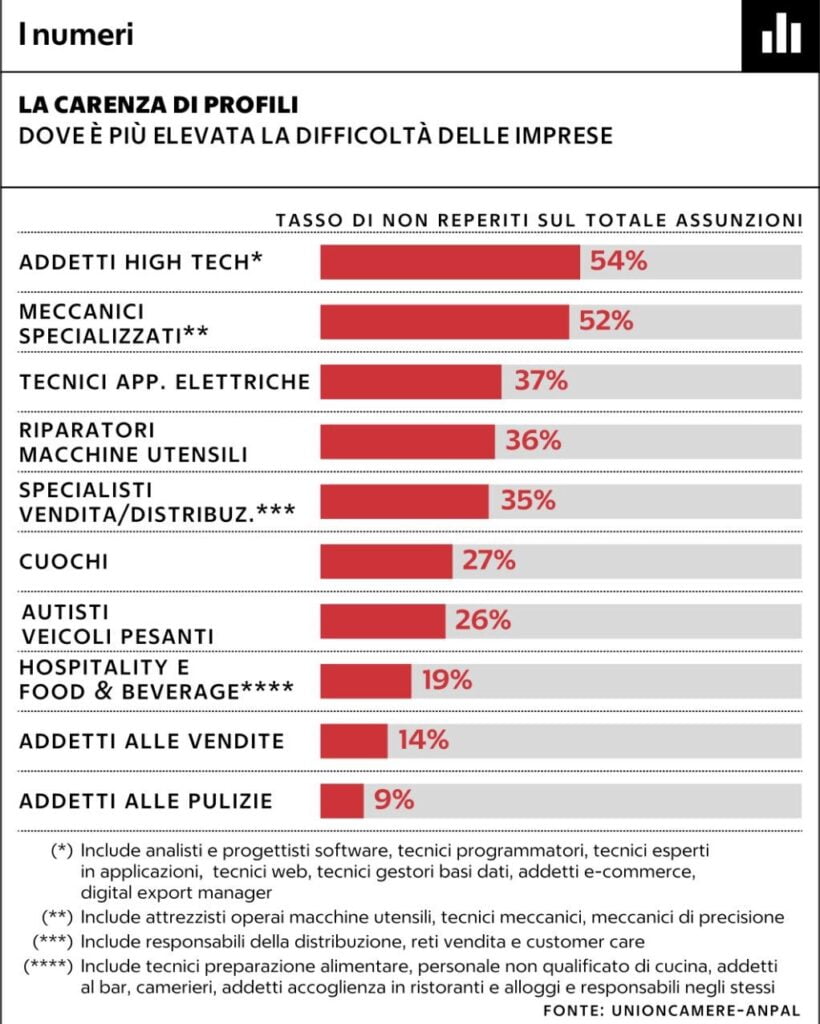The world has turned decisively, and years in advance, towards an important digital convergence. The pandemic was a powerful amplifier of needs that already existed, but exploded in the last year. We watch content, we study, we inform ourselves, we communicate, we work like never before with complex digital tools.
The Big in the technology sector have also moved to intercept the need for digital skills. Google itself has thought of creating a university with totally revisited role-based learning plans. And in Italy? There is a startup, indeed a Business School, indeed both, which is called AcademyQue. I had a chat with his CEO.
The Italian digital gap

Let's start with a question: what happens in Italy? The technological gap reigns supreme. Digital skills are still lacking for a large portion of people looking for work, or who want to find a new one after losing the one they had. “Who is excluded from digital," He says Andrea Ciofani, CEO of the Business School, “it loses its advantages“. It applies to individuals, it applies to companies (which fall if they are unable to compete in a world of increasingly precise parameters, which also direct choices through data).
Andrea can say he was on both sides of the fence: Having worked as an employee in the ICT field, he personally sought an answer to a question that many colleagues asked him: how to rethink one's work from a digital perspective. The answer? AcademyQue, a "new school" of Business. A digitally oriented school, with ad hoc dynamics and structures. And he founded it in convergence with two players in strategic sectors: a digital agency (Gaudibilia) and a company that selects professional profiles (Radar Consulting).
AcademyQue, “Nova Schola” of two worlds
A first notation that already tells us a lot: AcademyQue has an office (in Milan), but was born everywhere. She was born remotely. We could say that it is the first "native new world" Business School. And for this reason it starts from the valorization of people. It is aimed at recent graduates, freelancers and managerial figures, and provides courses tailored to each of these figures.
It has intensive 4-6 month courses, in streaming, with workshops and webinars also on demand. The skills to be developed are transversal and almost "tailored" compared to digital ones. You can study to improve your company, or to improve yourself and enter a market that is hungry for professionals.
Also re-enter?
"If we also consider outplacement as a path of awareness and contextualization with respect to what companies require today and in the future, then the issue of evaluating digital skills will certainly arise", Ciofani says. "The experience accumulated over the years in a certain sector can also prove very useful in other sectors. This is the moment when 'the cards are shuffled' and anything can happen, but to play you have to be seated at that table and know the new game."

"There are many possible combinations of knowledge, method, quality, etc. and I don't think there is a magic formula that applies to everyone,” Ciofani reiterates. “For this reason, in AcademyQue, training courses are delivered in blended mode: in real time, on-demand, podcast or text. Each training plan uses only a certain mix. For example, in the human resources sector, real-time sessions are favored over on-demand ones. In the field of marketing aimed at entrepreneurs, however, there is more use of intensive on-demand lessons."
The business school of the future? “Tell me what you know, and I'll tell you what I teach you”
With AcademyQue, a machine learning algorithm collects the knowledge of the future student from the answers to psycho-aptitude quizzes developed by a clinical psychologist. On the basis of this data, it also collects personal attitudes and detects areas for improvement, to guide it even later in the professional path.
The areas of the business school? Many. Even those who didn't think "digital" before. The most requested skills are those in e-commerce management, human resources, digital and social media recruiting, social media management. If we add Administration, Finance and Management Control, Digital Marketing and Advertising for Tourism we have a truly broad panorama.
Digital skills, vertical growth trend

According to the data of a very recent survey (updated last month) published by the digital observatory of Excelsior Unioncamere, the need for digital professions is gigantic. Digital skills are required in 6 out of 10 hires. It takes a lot of specialized resources to fill these positions. And candidates to fill them often don't have the right skills.
The objective of the Milanese Business School (but born "online") is to cover them all. Starting from the first Masters and Micromasters starting next month. Paths that continue beyond training with an internship in one of over 50 partner companies, and with a coaching program that follows students for another six months, helping them to choose the company where they can do better, and be more rewarded .
In the future it will be very difficult to give up the benefits of these new methods. It is more likely that we will resort to increasingly effective training models from which to choose.
Andrea Ciofani, AcademyQue CEO
In other words, the formation of the future will be the effect of digital, not natural, selection. the methods capable of giving more value, competence and culture in an effective way will be those that will dominate the world of training. And in business this path will be even more popular if it is able to directly build a path between learning and work.


